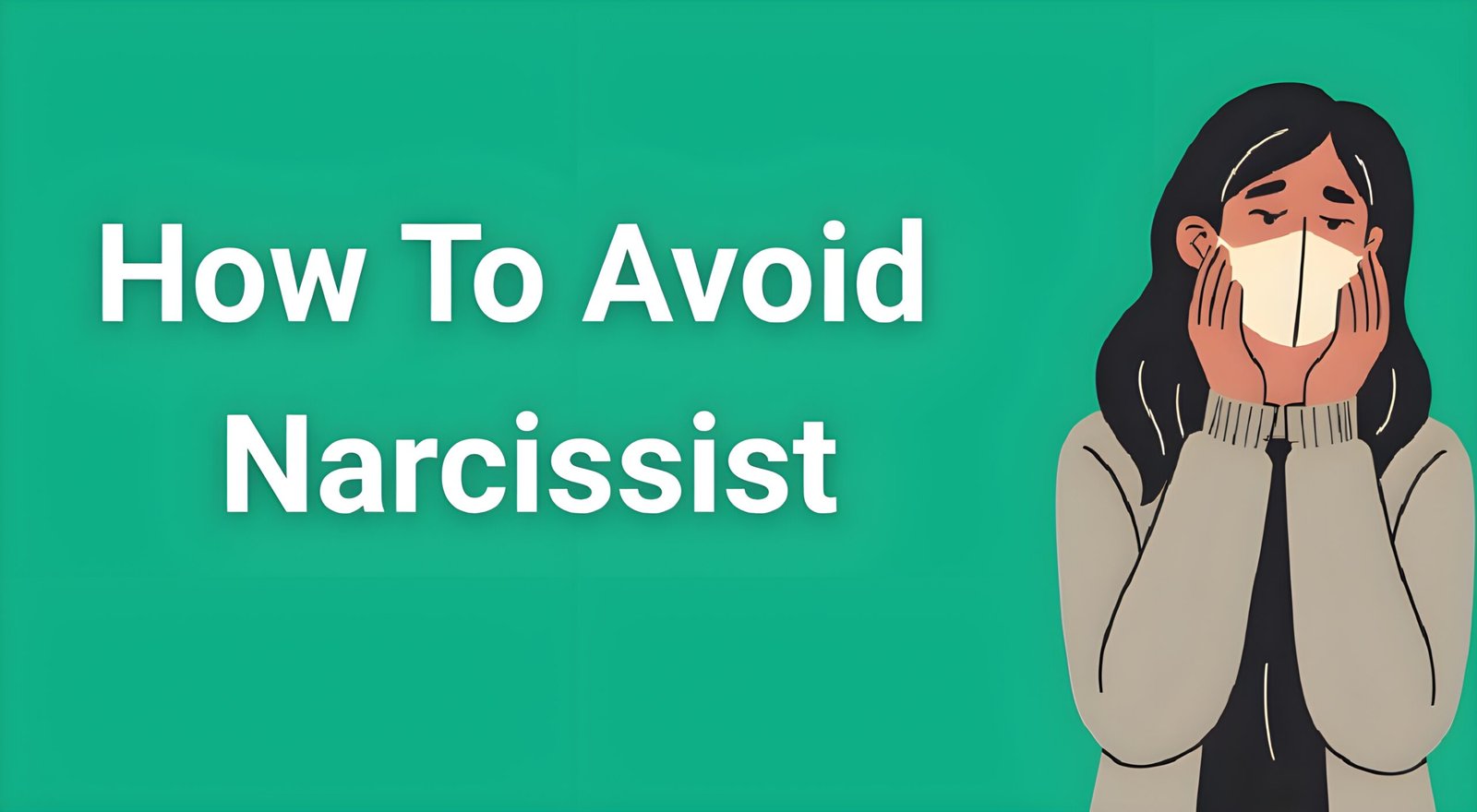Learning how to avoid narcissist behavior before it destroys your mental health, relationships, and self-worth is one of the most crucial life skills you can develop. Whether you’ve survived narcissistic abuse before or simply want to protect yourself from toxic individuals, understanding the early warning signs can literally save your sanity and emotional well-being.
- Understanding Narcissistic Behavior: What You’re Really Avoiding
- 12 Critical Red Flags: How to Avoid Narcissist People Before They Hook You
- Where Narcissistic People Hunt for Victims
- Building Your Narcissist-Proof Defense System
- Recovery and Healing After Narcissistic Encounters
- Special Circumstances: When You Can’t Leave Yet
- Long-Term Prevention: Creating a Narcissist-Resistant Life
- Recognizing Your Own Growth and Progress
- Frequently Asked Questions
- Conclusion: Your Journey to Freedom and Authentic Relationships
Narcissistic individuals are master manipulators who can initially appear charming, successful, and even irresistible. However, beneath this carefully crafted facade lies a pattern of exploitation, emotional manipulation, and psychological control that can leave devastating impacts on their victims. This comprehensive guide will teach you exactly how to identify, avoid, and protect yourself from narcissistic people in every area of your life.
Understanding Narcissistic Behavior: What You’re Really Avoiding
Before diving into how to avoid narcissist manipulation, it’s essential to understand what narcissistic behavior actually looks like. Narcissistic Personality Disorder (NPD) affects approximately 1-2% of the population, but narcissistic traits exist on a spectrum, meaning you’ll encounter people with varying degrees of these toxic characteristics throughout your life.
The Hidden Psychology Behind Narcissistic Behavior
Narcissistic individuals operate from a place of deep insecurity masked by grandiose self-image. They lack genuine empathy, require constant admiration, and view relationships as transactional tools to meet their needs. Understanding this psychology is crucial when learning how to avoid narcissist entanglements.
Research shows that narcissistic behavior often stems from childhood trauma, inconsistent parenting, or environments that rewarded superficial achievements over authentic emotional development. This creates adults who are emotionally stunted yet highly skilled at manipulation and control.
12 Critical Red Flags: How to Avoid Narcissist People Before They Hook You
1. Love Bombing and Excessive Early Charm
One of the most dangerous tactics narcissistic individuals use is “love bombing” – overwhelming you with excessive attention, gifts, compliments, and declarations of love unusually early in the relationship. This isn’t genuine affection; it’s a calculated strategy to fast-track emotional attachment and bypass your natural defenses.
Warning Signs:
- Professing love within days or weeks
- Excessive gifts and grand romantic gestures
- Making you feel like you’re their “soulmate” immediately
- Pushing for rapid commitment or exclusivity
2. Boundary Testing and Violation
Narcissistic people systematically test and violate boundaries to assess how much control they can exert over you. They start small and gradually escalate their boundary violations as you demonstrate tolerance for their behavior.
Red Flags to Watch:
- Ignoring your “no” and continuing to push
- Making decisions that affect you without consultation
- Accessing your personal belongings without permission
- Dismissing your comfort levels as “too sensitive”
3. Grandiose Self-Image and Superiority Complex
Learning how to avoid narcissist individuals requires recognizing their inflated sense of self-importance. They genuinely believe they are superior to others and deserve special treatment, rules, and considerations that don’t apply to regular people.
Observable Behaviors:
- Constant bragging about achievements (real or exaggerated)
- Name-dropping important connections
- Expecting preferential treatment in all situations
- Becoming angry when treated like everyone else
4. Lack of Genuine Empathy
Perhaps the most telling sign of narcissistic behavior is the complete absence of authentic empathy. While they may mimic empathetic responses when it serves their purposes, they fundamentally cannot understand or care about others’ emotional experiences.
How This Manifests:
- Dismissing your feelings as unimportant
- Inability to comfort you during difficult times
- Making your pain about them somehow
- Showing no genuine remorse for causing hurt
5. Exploitation and Transactional Relationships
Narcissistic individuals view all relationships through a lens of “what can this person do for me?” They strategically cultivate connections with people who can provide resources, status, admiration, or other benefits while discarding those who can’t serve their needs.
Warning Signs:
- Only contacting you when they need something
- Keeping score of favors and expecting repayment
- Surrounding themselves with successful or attractive people
- Quick to abandon friends facing difficulties
6. Gaslighting and Reality Distortion
Gaslighting is a sophisticated form of psychological manipulation where narcissistic people systematically make you question your own memories, perceptions, and sanity. This is one of their most dangerous weapons and a critical reason to learn how to avoid narcissist manipulation.
Gaslighting Tactics Include:
- Denying conversations or events that definitely happened
- Claiming you’re “too sensitive” or “misremembering”
- Rewriting history to make themselves look better
- Making you doubt your own emotional reactions
7. Jealousy and Sabotage of Your Success
Narcissistic individuals cannot genuinely celebrate others’ achievements because they view life as a zero-sum game. Your success threatens their sense of superiority, leading them to actively sabotage your accomplishments or minimize your achievements.
How This Appears:
- Downplaying your successes or attributing them to luck
- Creating drama during important events in your life
- Competing with you inappropriately
- Feeling threatened by your independence or growth
8. Emotional Manipulation and Control Tactics
Master manipulators, narcissistic people use a sophisticated toolkit of emotional control strategies to maintain power in relationships. Understanding these tactics is essential when learning how to avoid narcissist emotional manipulation.
Common Control Methods:
- Silent treatment as punishment
- Emotional blackmail and guilt trips
- Playing victim when confronted about their behavior
- Using your vulnerabilities against you
9. Inability to Accept Criticism or Responsibility
Narcissistic individuals have incredibly fragile egos despite their confident exterior. They react with extreme defensiveness, rage, or blame-shifting when faced with any criticism, feedback, or suggestion that they’re not perfect.
Observable Reactions:
- Explosive anger over minor criticisms
- Blaming others for their mistakes
- Never genuinely apologizing for their actions
- Turning discussions about their behavior into attacks on you
10. Inconsistent Behavior and Multiple Personalities
One confusing aspect of narcissistic behavior is their ability to present completely different personalities to different people. This chameleon-like quality makes it difficult for victims to get validation from others who see the “charming” version.
Pattern Recognition:
- Dramatically different behavior in public vs. private
- Other people describing them in ways that don’t match your experience
- Switching between loving and cruel behavior unpredictably
- Strategic presentation based on what they want from each person
11. Violation of Digital Boundaries and Privacy
In our digital age, narcissistic individuals often extend their control tactics into online spaces, violating digital boundaries and using technology as a tool for surveillance and manipulation.
Digital Red Flags:
- Demanding access to your social media accounts or phone
- Monitoring your online activity excessively
- Using your private information against you
- Creating fake accounts to spy on you or your connections
12. Targeting Specific Personality Types
Understanding how to avoid narcissist targeting requires recognizing if you possess traits that make you particularly attractive to narcissistic individuals. They specifically seek out empathetic, giving, successful, and emotionally available people.
High-Risk Traits:
- High empathy and compassion for others
- People-pleasing tendencies
- Recent emotional vulnerability (divorce, death, job loss)
- Success that they can benefit from or feel superior by association
- History of trauma or low self-esteem
Where Narcissistic People Hunt for Victims
Online Dating Platforms
Learning how to avoid narcissist individuals in dating starts with understanding that they heavily populate online dating platforms. The anonymous nature and ability to present a curated image make these platforms ideal hunting grounds for narcissistic people.
Protection Strategies:
- Move to phone conversations quickly to assess consistency
- Ask specific questions about their past relationships
- Pay attention to how they talk about ex-partners
- Notice if they avoid answering direct questions about themselves
Workplace Environments
Professional settings provide narcissistic individuals with built-in power structures they can exploit. Learning how to avoid narcissist colleagues and supervisors is crucial for your career and mental health.
Workplace Warning Signs:
- Taking credit for others’ work consistently
- Throwing colleagues under the bus to look better
- Creating unnecessary drama and conflict
- Manipulating information to control outcomes
Social and Community Groups
Narcissistic people often gravitate toward social groups, volunteer organizations, and community activities where they can gain admiration, control, and access to new potential victims.
Community Red Flags:
- Quickly positioning themselves in leadership roles
- Gossiping excessively about other members
- Creating factions and turning people against each other
- Using group activities primarily for personal networking
Building Your Narcissist-Proof Defense System
Develop Strong Personal Boundaries
The most effective way to learn how to avoid narcissist manipulation is to establish and maintain firm personal boundaries. Narcissistic individuals specifically target people with weak or inconsistent boundaries because they’re easier to exploit and control.
Boundary Development Steps:
- Identify your non-negotiables in relationships
- Communicate boundaries clearly and consistently
- Enforce consequences when boundaries are violated
- Practice saying “no” without extensive explanations
- Remove yourself from situations where boundaries aren’t respected
Strengthen Your Self-Worth and Identity
Narcissistic people prey on individuals with low self-esteem or unclear sense of identity. Building unshakeable self-worth creates a natural repellent effect against narcissistic manipulation.
Self-Worth Building Activities:
- Regular self-reflection and journaling
- Pursuing personal interests and hobbies independently
- Celebrating your achievements without external validation
- Developing skills that make you feel competent and confident
- Surrounding yourself with genuinely supportive people
Trust Your Intuition and Gut Instincts
One of the most powerful tools in learning how to avoid narcissist individuals is developing trust in your intuitive responses. Your subconscious often picks up on manipulation tactics before your conscious mind recognizes them.
Intuition Development:
- Pay attention to how you feel in someone’s presence
- Notice physical reactions like tension, anxiety, or unease
- Don’t dismiss feelings of confusion or walking on eggshells
- Document patterns of behavior that concern you
- Trust your discomfort even when you can’t explain it logically
Recovery and Healing After Narcissistic Encounters
Understanding Trauma Bonding
If you’ve previously been involved with narcissistic individuals, you may have experienced trauma bonding – a psychological attachment formed through cycles of abuse and intermittent reinforcement. Understanding this phenomenon is crucial for complete recovery and learning how to avoid narcissist relationships in the future.
Trauma bonding occurs when the same person who hurts you also provides comfort, creating a powerful psychological addiction that can feel stronger than cocaine. This isn’t weakness; it’s a normal neurological response to intermittent reinforcement that can be overcome with proper understanding and support.
For survivors struggling with trauma bonding, our 30 Day Trauma Bond Recovery Workbook provides a scientifically-backed, day-by-day system for breaking free from these neurological chains. This comprehensive program has helped over 2,000 survivors rewire their brains and reclaim their freedom using targeted neuroscience-based techniques.
Rebuilding Your Reality After Gaslighting
Extended exposure to gaslighting can leave you questioning your own perceptions, memories, and judgment. This reality distortion makes it challenging to trust yourself in future relationships and can impair your ability to recognize red flags.
Reality Reconstruction Steps:
- Keep a detailed journal of interactions and events
- Seek validation from trusted friends and family members
- Work with a therapist specializing in narcissistic abuse recovery
- Practice mindfulness to reconnect with your authentic feelings
- Gradually rebuild confidence in your perceptions and judgments
Professional Support and Resources
Recovering from narcissistic abuse often requires professional support to fully heal and develop the skills needed to avoid future toxic relationships. A qualified therapist can help you process trauma, rebuild self-esteem, and develop healthy relationship patterns.
If you’re currently questioning whether your situation involves narcissistic abuse, our Narcissistic Abuse Clarity Report provides expert analysis of your specific situation within 48-72 hours. This personalized assessment helps you understand exactly what you’re dealing with and provides a clear roadmap for protection and recovery.
Special Circumstances: When You Can’t Leave Yet
Narcissistic Family Members
Learning how to avoid narcissist family members presents unique challenges since you can’t simply cut contact without significant consequences. This situation requires specialized strategies for protection while maintaining necessary family relationships.
Family Protection Strategies:
- Limit personal information sharing
- Keep interactions brief and surface-level
- Develop gray rock technique (boring responses)
- Build strong support networks outside the family
- Set specific time limits on family interactions
Workplace Narcissists You Can’t Avoid
Professional environments sometimes trap you with narcissistic supervisors or colleagues you must interact with regularly. Learning how to avoid narcissist workplace manipulation while protecting your career requires careful strategy.
Professional Protection Methods:
- Document all interactions and decisions
- Communicate primarily through email for record-keeping
- Build alliances with other colleagues
- Focus on measurable performance metrics
- Prepare exit strategies and alternative opportunities
For those trapped in situations they can’t immediately escape, our specialized guide \”How to Survive When You Can\’t Leave Yet\” provides concrete strategies for psychological protection and gradual exit planning while maintaining your safety and sanity.
Co-Parenting with Narcissistic Ex-Partners
Divorcing a narcissistic partner doesn’t end the relationship when children are involved. Learning how to avoid narcissist manipulation in co-parenting situations requires specific techniques to protect both yourself and your children.
Co-Parenting Protection:
- Use court-approved communication apps
- Keep all communications focused strictly on children
- Document parenting violations and concerning behaviors
- Teach children about healthy boundaries age-appropriately
- Maintain consistent, loving stability in your home environment
Long-Term Prevention: Creating a Narcissist-Resistant Life
Developing Healthy Relationship Standards
Creating lasting protection against narcissistic individuals requires establishing and maintaining high standards for how people treat you in all relationships. This isn’t about perfection; it’s about basic respect, reciprocity, and emotional safety.
Healthy Relationship Non-Negotiables:
- Mutual respect for boundaries and autonomy
- Consistent behavior that matches stated values
- Ability to handle conflict constructively
- Genuine empathy and emotional support
- Reciprocal investment in the relationship’s success
Building a Strong Support Network
Narcissistic individuals thrive on isolation and often work systematically to separate their victims from supportive relationships. Building and maintaining a diverse, healthy support network provides protection against manipulation and reality distortion.
Support Network Elements:
- Close friends who know your authentic self
- Family members who provide unconditional love
- Professional mentors and colleagues
- Community connections through shared interests
- Mental health professionals when needed
Continuous Education and Awareness
Learning how to avoid narcissist manipulation is an ongoing process that requires continuous education about psychology, healthy relationships, and personal development. Stay informed about manipulation tactics, trauma responses, and recovery strategies.
Educational Resources:
- Books on narcissistic abuse and recovery
- Podcasts featuring survivor stories and expert insights
- Support groups (both online and in-person)
- Workshops on boundaries, self-esteem, and healthy relationships
- Regular therapy or counseling sessions
Recognizing Your Own Growth and Progress
Measuring Your Narcissist-Avoidance Skills
As you develop stronger skills in recognizing and avoiding narcissistic individuals, you’ll notice specific changes in your relationship patterns, self-confidence, and overall life satisfaction.
Progress Indicators:
- Faster recognition of red flags and manipulation tactics
- Increased comfort with setting and enforcing boundaries
- Reduced tolerance for disrespectful or inconsistent behavior
- Greater trust in your own perceptions and judgments
- Improved quality of relationships across all life areas
Celebrating Your Strength and Resilience
Surviving narcissistic abuse and learning how to avoid narcissist relationships in the future demonstrates incredible strength, intelligence, and resilience. Acknowledge your growth and celebrate the courage it takes to prioritize your well-being and demand healthy treatment.
Remember that healing isn’t linear, and developing strong narcissist-avoidance skills takes time and practice. Be patient with yourself as you learn, grow, and create the safe, authentic relationships you deserve.
Frequently Asked Questions
Q: Can narcissistic people change their behavior?
A: While personality change is theoretically possible, it requires the narcissistic individual to acknowledge their problems, take full responsibility for their actions, and commit to extensive therapy. Most narcissistic people lack the self-awareness and motivation necessary for genuine change.
Q: How can I tell the difference between confidence and narcissism?
A: Confident people can celebrate others’ successes, accept criticism gracefully, maintain consistent behavior across different relationships, and show genuine empathy. Narcissistic individuals lack these qualities and use confidence as a mask for insecurity.
Q: Is it possible to have a healthy relationship with someone who has narcissistic traits?
A: Relationships with people who have strong narcissistic traits are extremely challenging and often impossible to maintain healthily. The fundamental lack of empathy and reciprocity makes genuine intimacy and partnership nearly impossible.
Q: Why do I keep attracting narcissistic people?
A: Narcissistic individuals specifically target empathetic, giving, and emotionally available people. If you have a history of trauma, people-pleasing tendencies, or low self-esteem, you may be more vulnerable to their manipulation tactics.
Q: How long does it take to recover from narcissistic abuse?
A: Recovery timelines vary significantly based on the duration and severity of abuse, your support system, and access to appropriate therapy. Most survivors notice significant improvement within 6-12 months of no-contact and consistent healing work.
Q: Should I try to expose a narcissistic person to others?
A: Generally, attempting to expose narcissistic individuals backfires because they’re skilled manipulators who can turn situations around to make you look unstable. Focus on protecting yourself and supporting other victims rather than trying to convince others.
Conclusion: Your Journey to Freedom and Authentic Relationships
Learning how to avoid narcissist individuals is ultimately about reclaiming your power, honoring your worth, and creating space for genuine, healthy relationships in your life. The red flags and strategies outlined in this guide provide you with the tools needed to recognize manipulation early and protect yourself from toxic individuals.
Remember that avoiding narcissistic people isn’t about becoming suspicious or closed off to new relationships. It’s about developing discernment, trusting your instincts, and maintaining standards that support your emotional well-being and personal growth.
Your past experiences with narcissistic individuals, while painful, have taught you valuable lessons about human nature, your own strength, and what you truly want in relationships. Use this knowledge to build a future filled with authentic connections, mutual respect, and genuine love.
The journey of learning how to avoid narcissist manipulation and build healthy relationships takes courage, patience, and self-compassion. You deserve relationships that energize rather than drain you, partners who celebrate your success rather than compete with you, and connections that make you feel more like yourself rather than questioning your sanity.
Trust yourself, maintain your boundaries, and never settle for treatment that makes you feel small, confused, or unworthy. You have the power to create the safe, authentic, and loving relationships you deserve. Your healing journey is a testament to your strength, and your commitment to avoiding future toxicity demonstrates wisdom that will serve you for the rest of your life.






